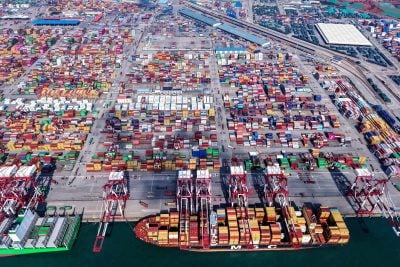Global population increases mean economies need to grow and create new jobs.
The UN predicts that by 2050, Africa’s total population will double to 2.4bn. That means 3.5m more people every month, or 80 additional people per minute. Africa needs to create a lot of jobs.
World Bank forecasts suggest that 80% of future jobs – in developed markets anyway – will be created in SMEs. Developed markets also have a long experience of the benefits of supporting SMEs’ growth.
In the UK, government statistics show that 99.9% of all private secto r businesses are classed as SMEs and they contribute 60% of all private sector employment. Given the composition of developing markets’ economies, one could reasonably expect a similar job-creating burden falling on African SMEs.
However, there is a problem. The World Bank also estimates that 50% of SMEs globally lack access to finance. In South Africa, this problem is particularly acute. While there is no solution for all of Africa, there is an onus on Africa’s more advanced economies to lead by example. Sadly, South Africa is not delivering.
In South Africa, in 2015, according to the Bureau for Economic Research, SMEs contributed just 40% of GDP. What is truly shocking is that only 34% of SMEs are black-owned.
This is amazing in a country where 90% of the population is black. South Africa’s racial wealth divide is not just an apartheid hangover; it is severely hampering economic growth and prevents SMEs delivering the economic dividends seen in more developed markets.
South Africa’s economy is dominated by large conglomerates that make a few very wealthy and keep the majority of the population poor and unemployed. Unemployment in South Africa is 27%.
If you’re black, it’s closer to 40%. Data from Oxfam shows the richest three people in South Africa have the same wealth as the bottom 50% and the former’s fortunes are growing.
Big business and the financial sector must do more to help black entrepreneurs to succeed. All large companies in South Africa need to play a part in creating wealth and growing the economy.
New products needed
Banks need to develop new products and services to support black entrepreneurs. It is almost impossible for black entrepreneurs – who are less likely to have the comprehensive credit checks or collateral – to present what is required to secure a business loan.
Failure to create innovative products and services will exacerbate the racial wealth divide. This, plus high youth unemployment and a lack of economic opportunity, spells disaster for the rainbow nation.
At Oakbay, we’ve tried to do our bit in terms of disrupting the business monopolies that exist. In terms of key performance indicators: we give profit and job creation equal importance. We’ve grown from eight people to 8,000 in the last 20 years; but it’s hard for tomorrow’s Oakbay to emerge with the way SMEs are treated in contemporary South Africa.
At a macro level, it is very encouraging to hear of the African Union’s commitment to continental free trade and a skills revolution, but at a micro level – there is much crucial low hanging fruit to be picked first or at least in tandem – and access to financial services in one of the continent’s leading economies represents just that.
Ronica Ragavan, CEO, Oakbay Investments. Oakbay Investments is an investment holding company for the Gupta family businesses in South Africa and has invested more than R10bn ($752m) in the country.
Want to continue reading? Subscribe today.
You've read all your free articles for this month! Subscribe now to enjoy full access to our content.
Digital Monthly
£8.00 / month
Receive full unlimited access to our articles, opinions, podcasts and more.
Digital Yearly
£70.00 / year
Our best value offer - save £26 and gain access to all of our digital content for an entire year!

 Sign in with Google
Sign in with Google 




